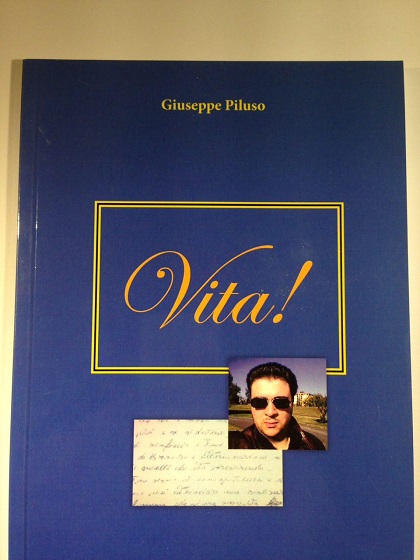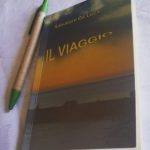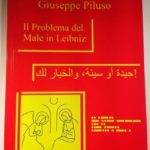They wrote about me … (2015 – 2017)
Giuseppe Piluso – Book title: “Life!”
Giuseppe Piluso’s poems collected in a small volume entitled “Life” for the Nuova Santelli Edizioni, from the title, tell us that this is the analysis of a Life, that of the poet.
I expected, therefore, to find myself in front of a gentleman of a certain age who wanted to relive, in order to let others participate, some of the important moments of his past: his life, his feelings, his emotions, his past and his present. His being a well-rounded man.
First surprise: Giuseppe Piluso is a young man full of ideas and attentive to new technologies, not the classic poet curved to think but he is active on YouTube where it is possible to follow him in acting videoclips and interviews, he works at Radio Way where he describes the world of contemporary poetry, he is a founding member of the Socio-Cultural Association Club of Poetry of Cosenza, and he begins his first literary adventure by asking himself: why did I write this book?
Let’s start by saying that the temporal structure is already particular in its methodical approach: Pre 2014, 2014, Post 2014. The turning point is undoubtedly the 2014 year of which he says: “I am satisfied, because I have been determined in my choices” and from here it is born the more full-bodied part of his lyrics, offering the reader all his creativity and lyricism.
Another peculiarity is given by the temporal precision: each poem is dated with precision and next to it also the place where it was thought or written and the time, always precise, this to signify the flow of the Life of Piluso that photographs the essential moments of particular emotional situations of personal or collective experience; determining the time is extremely important because Giuseppe Piluso, in this way, certainly wants to crystallize every single moment trying to universalize it in order to share with others his emotions, his thoughts, his ideas.
This is a first point that makes Giuseppe Piluso a true poet able to catalyze the reader’s attention from the first pages.
Clearly the thickness and the character of a Poet is given by the themes that he deals with, by the strength of each single poem that knows how to enter “in connection” with others, by the style that makes it identifiable and characterizing, by lexical and linguistic purity.
There is a group of poems dedicated to Woman and Love, among which we point out: “Woman is, Entering your eyes, Gentle 14th February, Woman!
Innamorato raggiunge l’apice del discorso quando anela con forza che il primo Amore di ogni essere umano è il diritto alla libertà in tutte le sue più svariate sfaccettature.
In “Woman is” the woman is seen, metaphorically, as all the seasons of life, as if to say that the woman is always important, essential for man whether it is spring or winter. Every age has its values, its beauty; the presence of women is irrepressible, exhaustive, developing even when it becomes Wind and Rain. The idealized woman is the leader and the path for the man in love. In Gentle 14th February the Poet goes even further, that is he himself becomes the attentive defender of female freedom: to win the social and political rights not always possessed, to hope for equal treatment with man, not just an angel of the hearth but substance full of absolute values and with the poem In love he reaches the peak of his speech when he craves that the first Love of every human being is the right to freedom in all its most varied facets.
Another group of poems of high aesthetic value are those with a lorcan setting,: “Light.” Don’t be afraid, look at the moon!” Artificial star” Land of Stars.
The dream is the plot that, like an expert Director of Life, combines his existence with the imaginary. Giuseppe Piluso lets us glimpse his Life and he interposes, expertly, with what he would like to be, which he craves and that he feels flowing through his veins: serenity, happiness, strength for himself and for others who participate in his existence. In my opinion these poems are beautiful because the Poet seems to play on the chessboard of life in search of the right and winning “move”.
Reading the poems of Giuseppe Piluso I was reminded of an epistle in which Bernardino Telesio, who was in Padua, exhort his Father, who was in Cosenza, to write to him through the star Geminga. Giuseppe Piluso also has moments of such imaginative effectiveness.
Two small stories close the book: “Historical memory 1 and 2″ in which he recalls episodes of his life as a boy always energetic, full of resources, armed with patience and tenacity to face his path of Life and if he falls to the ground he is always ready to get up to resume the speech interrupted indifferent to the situations created. Nice life lessons.
Piluso’s style is airy, the language used is immediate, the poetic technique is open, in blank verse and unconventional.
I am glad to have proposed a Poet, Giuseppe Piluso and his book Life, who can give us many more ideas of Life in the near future.
Maria Francesca Mancinelli
Correspondent for News Agency Ansa – Rome



